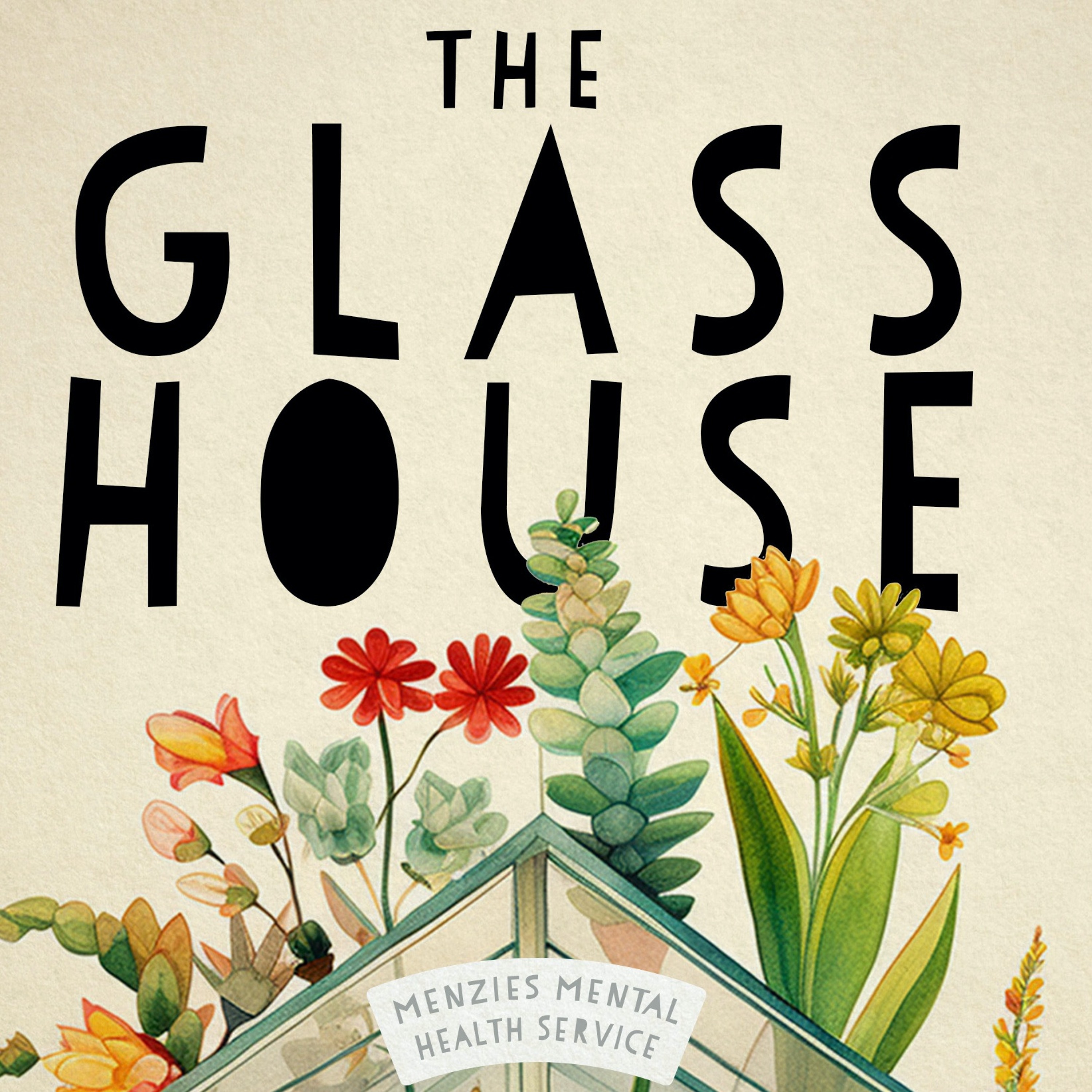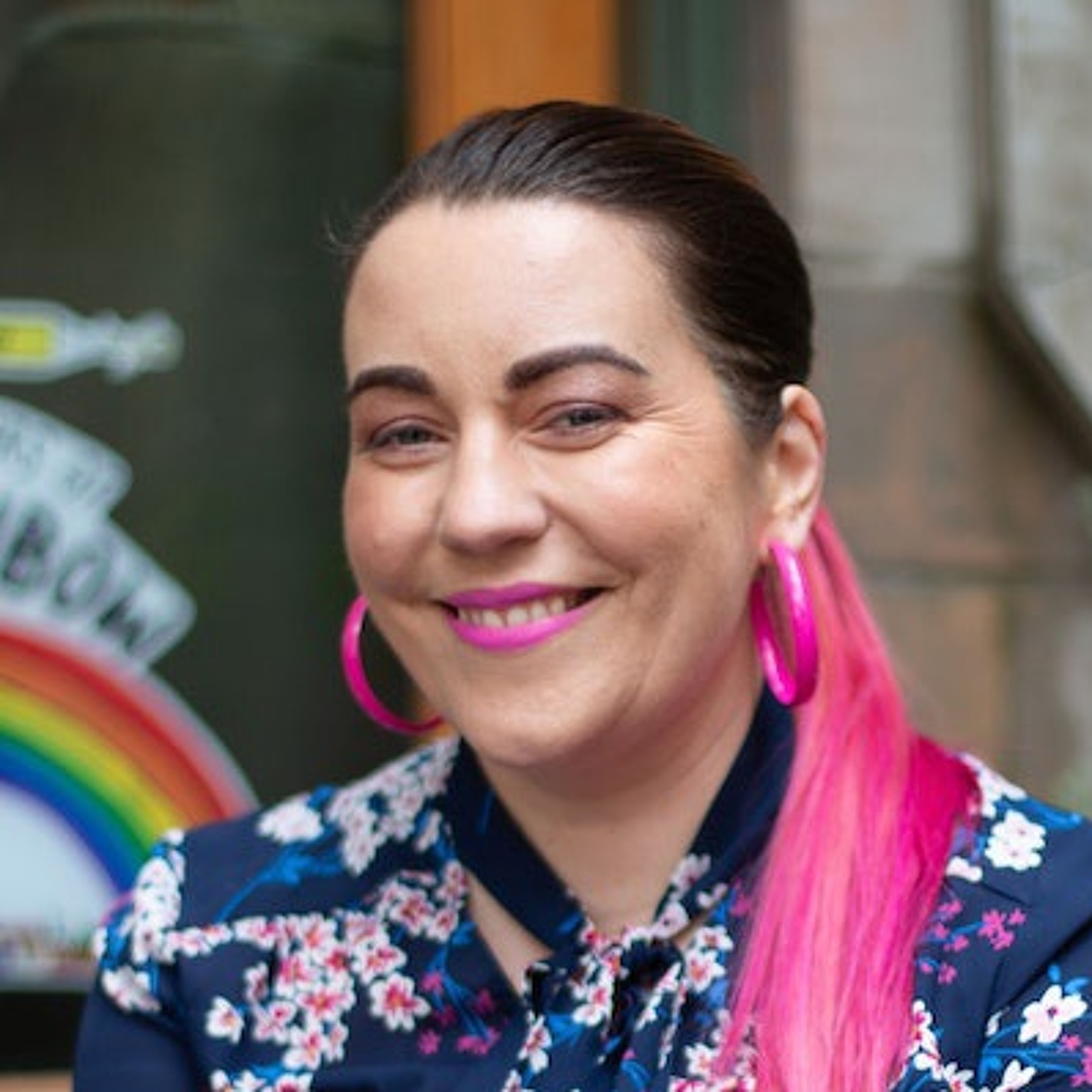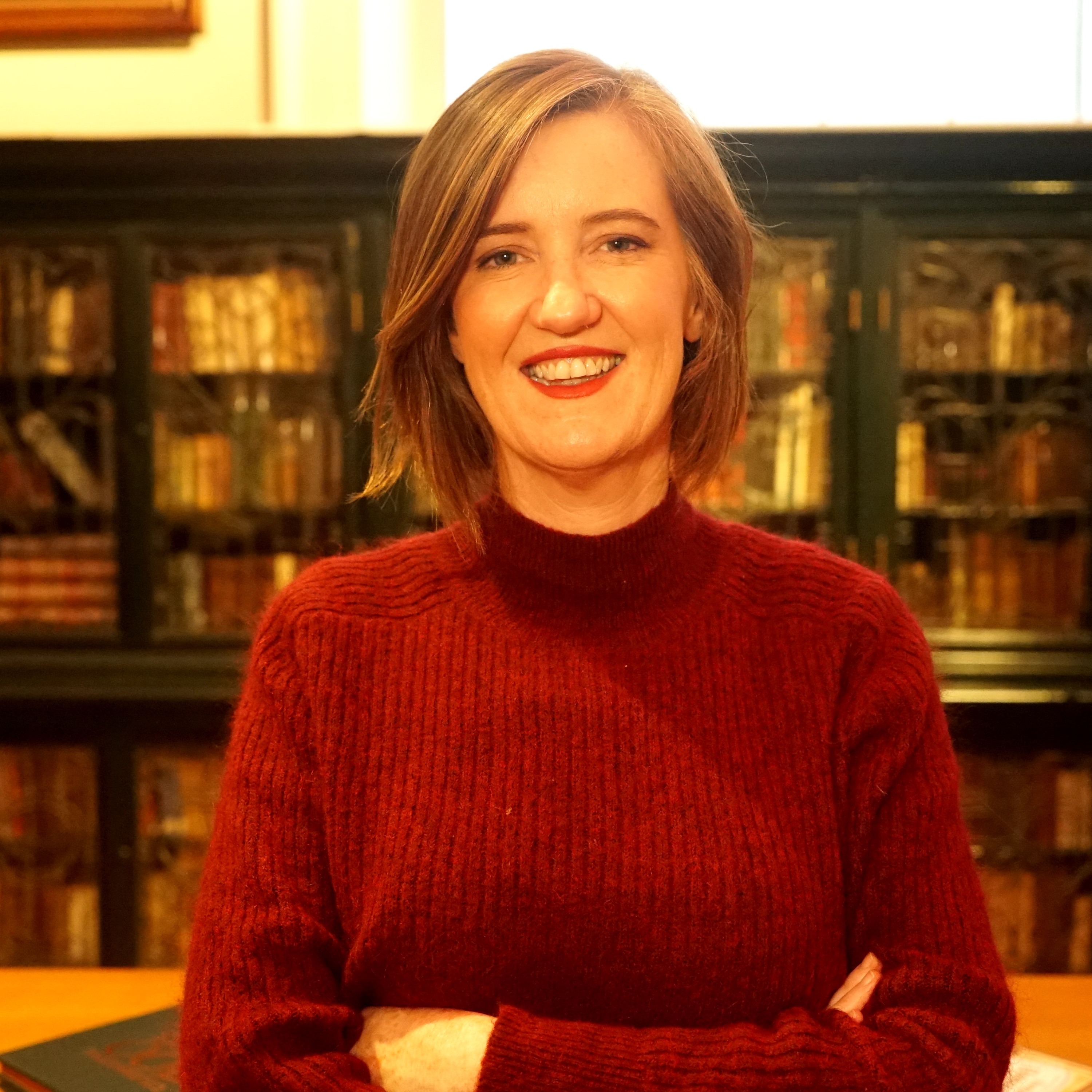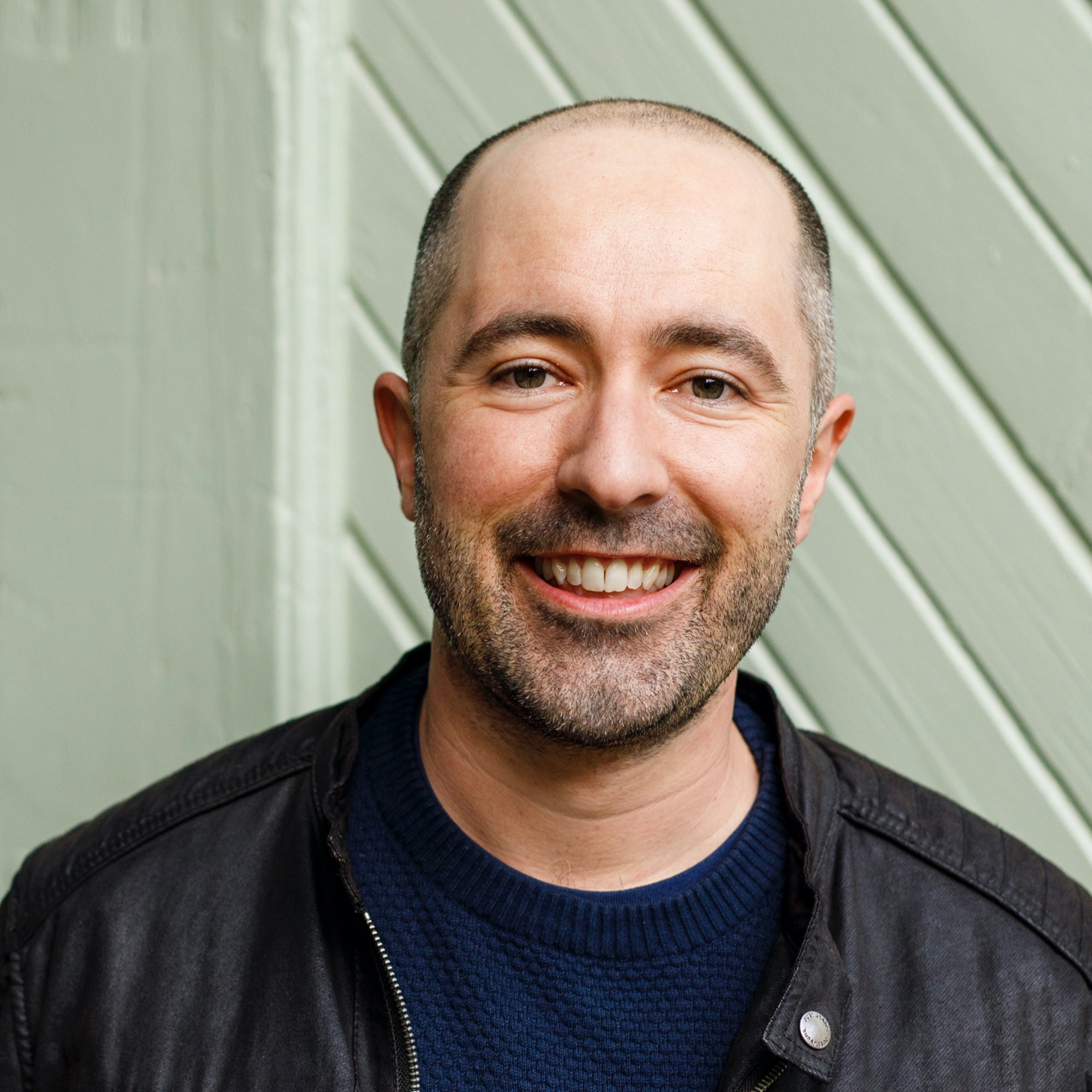Discover Good Reading Podcast
Good Reading Podcast

328 Episodes
Reverse
Psychiatry registrar Doctor Hannah Wright, a country girl with a chaotic history, thought she had seen it all in the emergency room. But that was nothing compared to the psychiatric ward at Menzies Hospital. Hannah must learn on the job in a strained medical system, as she and her fellow trainees deal with the common and the bizarre, the hilarious and the tragic, the treatable and the confronting. Every day brings new patients: Chloe, who has a life-threatening eating disorder; Sian, suffering postpartum psychosis and fighting to keep her baby; and Xavier, the MP whose suicide attempt has an explosive story behind it. All the while, Hannah is trying to figure out herself.
In this episode Gregory Dobbs talks to Anne Buist and Graeme Simsion about the importance of shining a light on the frontline of mental health through fiction, exploring the challenges of illness and treatment for both patients and professionals, and giving a voice to the spectrum of people dealing with mental illness.
Matilda, Jo, Penny and Cressy are all women at the top of their game; so imagine their surprise when they start to be personally overlooked and professionally pushed aside by less-qualified men. Only they're not going down without a fight. Society might think the women have passed their amuse-by dates but the Revenge Club have other plans. After all, why go to bed angry when you could stay up and plot diabolical retribution? Let the games begin...
In this episode Gregory Dobbs chats to Kathy Lette about why women are so drawn to revenge, why Australian women make the best heroines and embracing the journey through menopause and discovering the paradise beyond.
Acclaimed wildlife scientist Vanessa Pirotta has been mugged by whales, touched by a baby whale and covered in whale snot. In Humpback Highway, Pirotta dives beneath the surface to reveal the mysterious world of humpback whales — from their life cycle and the challenges humans present, to why whale snot and poo are important for us and the ocean. Plus the cutting-edge new technologies that allow us to see where they swim, listen to them talk and spy on them underwater.
Whether you’re a whale lover or you’re simply curious about the underwater world, 'Humpback Highway' will inspire and give you a new respect for these majestic, marine giants.
In this episode Gregory Dobbs chats to Vanessa Pirotta about how she became a whale scientist, why Australia's 'humpback highway' is key to understanding whale behaviour, and Vanessa also tells us what kind of parents whales make, and what the future holds for this incredible species.
'All Time High' is a comprehensive guide on how to enter the cryptocurrency market as a complete beginner and to prosper. Cryptocurrencies have the power to radically transform not only our financial lives, but our personal freedom, sovereignty and mindset. Powered by blockchain technology, cryptocurrencies offer a new way for investors to create wealth and a potential early retirement without having to be a trader, have financial knowledge or a prior skill level. Sydel Sierra has documented this success blueprint in five easy steps and within each part are the practical tools to discover the power of this asset class.
In this episode Gregory Dobbs chats to Sydel Sierra about what exactly is cryptocurrency and why it is so important in the financial world of the future, why Bitcoin is the foundation of this asset class but why holding a portfolio of cryptocurrencies is crucial in finding success in investment, and why good research is critical when exploring this investment class.
For years the firefighters of New York’s Engine 99 have rushed fearlessly into hot zones, saving countless lives and stopping devastating blazes in their tracks. They’ve also stolen millions from banks, jewellery stores and art galleries. With their inside knowledge and specialist equipment, they’ve become the most successful heist crew on the East Coast.
Their newest member, Andrea ‘Andy’ Nearland, is not what she seems either. She’s an undercover operative, hunting the men of Engine 99 for a host of crimes – including the murder of an off-duty cop and the disappearance of a mother and child. As the clock counts down to the gang’s most daring heist yet, loyalties begin to fray and mistrust boils over. Andy’s career is all smoke and mirrors, but infiltrating this crew of ‘heroes’ might prove to be her most dangerous job of all .
In this episode Gregory Dobbs chats to Candice Fox about the challenges of setting her latest crime thriller in the ultimate setting of New York's legendary boroughs of crime, why the opening pages of a heist caper are so important, and why perfectly harmonious criminal gangs are boring.
Named after a famous fictional character, librarian Bridget Jones was raised on a remote cattle station, with only her mother’s romance novels for company. Now living alone in Fremantle, Bridget is a hopeless romantic. She also believes that anyone who doesn’t like reading just hasn’t met the right book yet, and that connecting books to their readers is her superpower. If only her love life was that easy.
When handsome Italian barista Fabio progresses from flirting with love hearts on her coffee foam to joining the book club she runs at her library, Bridget prays her romance ‘curse’ won’t ruin things. But it’s the attention of her cranky neighbour Sully that seems to be the major obstacle in her life. Why is he going to so much effort to get under her skin? She soon discovers that not all romances start with a meet-cute, but they might just end in happily ever after…
In this episode Gregory Dobbs chats to Rachael Johns about how our idea of libraries as dull places is now a thing of the past, how exploring relationships and friendships are at the heart of what she writes, and why romance fiction endures by changing with the times.
Compassion continues Julie Janson’s emotional and intense literary exploration of the complex and dangerous lives of Aboriginal women during the 1800s in colonial New South Wales, which she began in Benevolence as a counter narrative to colonial history in Australian literature. Compassion is the dramatised life story of one of Julie Janson’s ancestors who went on trial for stealing livestock in New South Wales, and it is an exciting and violent story of anti-colonial revenge and roaming adventure. A gripping fictive account of Aboriginal life in the 1800s, Compassion follows the life of Duringah, AKA Nell James, the outlaw daughter of the Darug hero of Benevolence, Muraging.
In this episode Gregory Dobbs chats to Julie Janson about shaping the character of her ancestor Duringah, and charting her exploits as “the wild native thief”, and how juxtaposing the natural and spiritual worlds of the Darug nation with the terrible reality of life during colonial times illuminates the rich shared history of New South Wales.
'36 Ways of Writing a Vietnamese Poem', is a book-length poem that is an urgent, unsettling reckoning with identity and the violence of identity, embedded with racism, oppression and historical trauma. But it also addresses the violence in those assumptions – of being always assumed to be outside one’s home, country, culture or language. And the complex violence, for the diasporic writer who wants to address any of this, of language itself.
Making use of multiple tones, moods, masks and camouflages, Le’s poetic debut moves with unpredictable and destabilising energy between the personal and political, honouring every convention of diasporic literature – in a virtuosic array of forms and registers – before shattering the form itself. Like his award-winning book, 'The Boat', '36 Ways of Writing a Vietnamese Poem' conjures its own terms of engagement, escapes our traps, slips our certainties. As self-indicting as it is scathing, hilarious as it is desperately moving, this is a singular, breakthrough book.
In this episode Gregory Dobbs chats to Nam Le about how his first love has always been poetry rather than the prose of his first book, 'The Boat', how the double-bind of the experience of living in Australia as a man with Vietnamese heritage and how it is reflected in his poetry, how language can be imperialist, even destructive yet continues to shape us as a society and as humans.
Most of us have done our time in the retail trenches, but service stations are undoubtedly the frontline, as Melburnian David Goodwin found out when he started working the weekend graveyard shift at his local servo.
From his very first night shift, David absorbed a consistent level of mind-bending lunacy, encountering everything from giant shoplifting bees and balaclava-clad goons hurling cordial-filled water bombs from the sunroof of their BMW, to anarcho-goths high on MDMA releasing large rats into the store from their matching Harry Potter backpacks.
Over the years, David grew to love his mad servo, handing out free pies and chocolate bars on the sly as he grew a backbone and became street smart. Amidst the unrelenting chaos, he eventually made it out of the servo circus - and lived to tell the tale.
In this episode Gregory Dobbs chats to David Goodwin about what drew him to working in the wee hours at his local servo, the myriad of characters and space cadets he encountered along the way, and the how the people he met and the stories they had to tell changed his life.
Sound effects by zapsplat.com
Robert ‘Goupong’ Anderson, was once the fastest man in Australia and world-record holder. Goupong, his little sister Dot, and his best friend Jonathan belong to the Ugarapul people, the Green Tree Frog tribe, and live with their families and others within the harsh confines of the Deebing Creek Mission – a place run by the malevolent Boss Man.
Goupong and Jonathan are focused on winning the mission’s biggest running race that year, but when mysterious noises, unexplained occurrences and biblical events begin to plague the local area they are forced to investigate. Weaving fact with fiction, 'Robert Runs' explores the tough reality of mission life and the events leading up to the fateful day of the Deebing Creek Massacre.
In this episode Gregory Dobbs chats to Mariah Sweetman about honouring the life and stories of her ancestors, finding the character of the young Goupong through her research, and adopting a story structure that brings different perspectives together to reveal the complexity of our shared history.
Until well into the twentieth century, heartbroken men and women in Australia had a legal redress for their suffering: jilted lovers could claim compensation for 'breach of promise to marry'. Hundreds of people, mostly from the working classes, came before the courts, and their stories give us a tantalising insight into the romantic landscape of the past – where couples met, how they courted, and what happened when flirtations turned sour. In packed courtrooms and breathless newspaper reports, love letters were read as contracts and private gifts and gossip scrutinised as evidence.
In 'Courting', Alecia Simmonds brings these stories vividly to life, revealing the entangled histories of love and the law. Over the long arc of the nineteenth and twentieth centuries, pre-industrial romantic customs gave way to middle-class respectability, women used the courts to assert their rights, and the law eventually retreated from people's romantic lives – with women, Simmonds argues, losing out in the process.
In this episode Gregory Dobbs chats to Alecia Simmonds about the history of a breach of promise action, how the law was applied to love in the earliest days of the colony, the wonderful characters and fascinating stories that can be found in the legal archive and what was won and lost with the introduction of the Family Law Act in 1975.
As a young girl growing up in a strict ultra-Orthodox family, Dassi's life was preordained - marry young, live a devout life and raise children within the Adass community's religious rules. This righteous path would keep her safe from the immodest, secular world just a few blocks away in suburban Melbourne. But the Adass community was not safe for Dassi.
Dassi was fifteen when her revered school principal, Malka Leifer, started to single her out. Dassi's cloistered and harsh upbringing meant she didn't have the words for what was happening to her, but she knew it was very, very wrong. It would take her years to break free of the secrecy which pervaded the community and tell the police of her betrayal. And only then would she find out others, including two of her sisters, had also been abused, and would learn some in the Adass community had helped Leifer flee to Israel. With the only world she knew crumbling around her, Dassi found the strength to fight, leading a brave fifteen-year campaign to bring Leifer back to face Australian courts.
In this episode Gregory Dobbs chats to Dassi Erlich about the foundation and teachings of the Adass Jewish community and her terrible childhood experience, the decision she made to leave the sect, her fight to bring her sexual abuser Malka Leifer to account, and the support she received in writing a difficult memoir.
In this episode Gregory Dobbs chats to James Foley about where his ideas come from, the great characters he has created – Sally Tinker (the world’s foremost inventor under the age of twelve), Joe Tinker (full-time baby) and Charli Stevenson (foremost biologist under the age of eleven). We explore the hilarious and often quite smelly adventures they get up to, along with Sally's amazing range of inventions. There's also a few Dad jokes along the way.
In 'Brobot' Sally Tinker knows she can build a better brother than the messy, smelly version she has. Sally’s invention – Brobot – is fantastic … until the remote breaks and Brobot careens out of control.
In 'Gastronauts', the brain-enhancing nanobots Sally is testing have been accidentally swallowed by her baby brother, Joe. The only way to stop Joe from turning into a superbaby and wreaking super havoc is to shrink herself and travel inside Joe’s body on a mission to tackle the problem head-on.
In 'Stellarphant' Stella wants to be an astronaut. There is only one problem: Stella is an elephant. Every time she applies to Space Command, they come up with a new reason she can’t join. But where there’s a will, there’s a way, and Stella is determined to reach for the stars.
Sound effects by zapsplat.com
In 1940, as the Nazis sweep toward Lithuania, Japanese diplomat Chiune Sugihara defies his government and secretly issues visas to fleeing Jewish refugees. After the war, Sugihara is dismissed and disappears into obscurity.
Three decades later, in Australia, Rachel Margol is shocked when her engagement reveals a long-held family secret: she is Jewish. As she grapples with this deception and the dysfunction it has caused, unspoken tragedies from the past begin to come to light. When an opportunity arrives to visit Chiune Sugihara, the man who risked his life to save the Margols during World War II, Rachel becomes determined to meet him. But will a journey to Japan, and the secrets it uncovers, heal the family or fracture them for good?
In this episode Gregory Dobbs chats to Linda Margolin Royal about the origins of this story in her own family history, the plight of Jewish refugees in Lithuania in 1940, and the remarkable Japanese diplomat who risked his own life to save others.
Cassie has settled into life in Hedgely when, out of the blue, her troubled cousin, Sebastian, comes to stay for Hallowe'en. Sneering and scornful, Sebastian trails after Cassie and her friends, interfering with their coven projects and belittling the dangers of the faery world. But Cassie, Rue and Tabitha have bigger problems - as the nights grow longer, a dark shadow creeps out of the Hedge and villagers start behaving strangely, possessed with the desire to find a mysterious object.
When the Hedgewitch is called away, the girls decide to investigate and discover that whoever is controlling the villagers is seeking a faery relic: an ancient and dangerous weapon, hidden somewhere in the village. Their magical training will be put to the test as they venture deeper into the Hedge and race to find the faery treasure before it falls into the hands of the Erl King.
In this episode Gregory Dobbs chats to Skye McKenna about discovering the land of Faerie and the dangerous people a reader might encounter in the Forest of Hedge, the magical people and places in the village of Hedgely everyone should visit, and Cassie Morgan's journey from fledgeling to fully qualified witch.
Nedingar is the story of a young child who wants to meet their Ancestors (Nedingar), to know them, learn from them and follow their ways. The child's mother gently explains that they have already met their Ancestors, yesterday, today and tomorrow, and that they are everywhere in Country, walking close behind them. Beautifully illustrated by Leanne Zilman, Nedingar is a lyrical, dual language picture book from two debut Noongar creators that celebrates the beauty of Country and family.
In this episode Gregory Dobbs chats to Isobel Bevis about her own indigenous heritage, the significance of the willy-wagtail in Noongar culture, and unlocking the door to reading and understanding a dual language picture book.
Bush Bugs is a colourful array of Australian insects that will captivate young children. From spiky stick insects to hairy spiders, from blood-sucking mosquitos to dung-eating blow flies and feasting wasps, this is a fun and easy-to-read book introducing tiny readers to tiny bush critters.
Crow Baby tells the story of a baby born with two spirits – one human and one crow. The baby grows up to be Daisy Crow, a girl who lives with humans by day and flies with the crows in her dreams. Crow Baby is a bittersweet story of sacrifice, metamorphosis and change. It introduces key First Nations concepts of dream journeys and spiritual gifts to young readers aged 6+ and gives them much to think about and discuss.
In this episode Gregory Dobbs chats to Helen Milroy about creating a shortlist of our amazing bush bugs, finding the beauty in a blowfly, tracing the origins of the Daisy Crow character and how her background in mental health shapes her approach to storytelling.
On a Bright Hillside in Paradise, tells the story of a family of convict descendants in the back-blocks of Tasmania, on a farm in a place called Paradise. They lead hard-scrabble lives. The drama begins when strangers arrive, Christian Brethren evangelists who hold big revival meetings in local barns.
On a Bright Hillside in Paradise tackles big questions of faith and family but remains grounded in the dreams and strivings of its beautifully drawn characters. Higgs takes lives that history might have judged as small and imbues them with immense dignity and complex and compelling inner lives.
In this episode Gregory Dobbs chats to Annette Higgs about the long journey from idea to great story in a first novel, the fascinating family connection she has to the characters in the story and the social impact of the arrival of the Christian Brethren on the isolated communities of north-western Tasmania.
Three couples, friends since high school, rent a luxurious house in the mountains for an unplugged weekend of drinking and bushwalking. No internet, no phones, no stress. On the first night, the topic of partner-swapping comes up. It's a joke - at first. Not everyone is keen, but an agreement is made. The lights will be turned out. The three women will go into the three bedrooms. The three men will each pick a room at random. It won't be awkward later, because they won't know who they've slept with - or can pretend they don't.
When the lights come back on, one of the men is dead. No one will admit to being his partner. The phones still don't work, and now the car key is missing. They're stranded. And the killer is just getting started ...
In this episode Gregory Dobbs chats to Jack Heath about the hidden dangers within an adult game of truth or dare, the virtues of a murder case where everyone and no one appears to be the killer, and how dark humour can make murder fun.
Two women from different worlds in Renaissance France cross paths in a way that changes both their lives. One is Marguerite de Navarre, a King’s sister. Powerful, privileged and widely admired, Marguerite must nonetheless marry where she is told to, regardless of her feelings, and – despite the thrilling new ideas of religious reform causing upheaval in France – must toe the line for the good of her brother’s kingdom. Ever a risk-taker, she does what she can to protect her reformist friends.
The other is a cast out, itinerant child who longs to be a printer like her late father. Jehane goes dressed as a male by the name of Josse, at first for safety’s sake and then by choice, fending off the risks of being alone, unprotected and born female, poor but trying to live in freedom. These two remarkable women, the rich and poor come together in the most unexpected of ways.
In this episode Gregory Dobbs chats to Tracy Ryan about the challenges facing women in Renaissance France, how inventing a fictional character to complement the real Queen of the Navarre opened up storytelling possibilities, and how poetry, journal entries and Queen Marguerite's own writing have enriched the social and political fabric of this story.
























